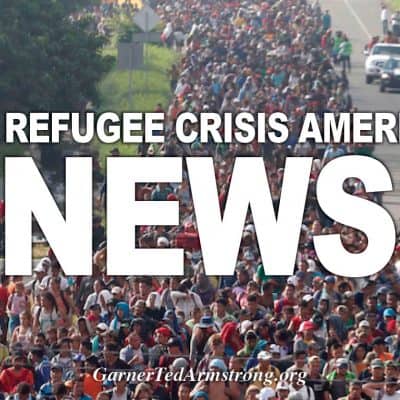A new Gallup poll released this week suggests that 52 percent of Americans regard the Russian military as a critical threat to U.S. interests. Those respondents are correct. A plurality of Americans, 32 percent, view Russia as our “greatest enemy today,” a stark difference from 19 percent last year, when a slight majority of Americans said North Korea was our greatest enemy.
Still, I respect the arguments of those who say Russia isn’t a critical threat. Sen. Rand Paul, R-Ky. for example, believes Russian-U.S. relations would be greatly improved were the U.S. respectful of Russia’s near-border interests. While I disagree with Paul, his argument does match Russia’s own claims. It’s also true that the Russian armed forces are not, at least in parity to the U.S., what they were during the mid-period of the Cold War. Extending this point, Daniel DePetris suggests that Russia’s smaller economy, lower military expenditure, and localized interests mean it poses no critical threat to the west.
But those who believe Russia is a critical threat are ultimately correct. The nature of Vladimir Putin’s threat is measured not by economics or military spending, but rather by its intent and action. On those counts, Russia has shown impressive ability to challenge American global influence, and threaten U.S. security interests.
When it comes to global influence, Putin has cultivated an impressive mercantile relationship with India. He has drawn Saudi Arabia’s Crown Prince Mohammed bin Salman towards Moscow (although President Trump’s retention of some military forces in Syria will draw the Saudis back to Washington’s corner). Putin has forged closer relations with China. At the United Nations, Russia has successfully obstructed U.S. policy interests on Syria, Ukraine, and Venezuela.
Russia has also successfully used coercive power to pose a critical threat to America. Russia’s military now possesses maneuver warfare capabilities to challenge NATO in Europe. Russian intelligence officers wage campaigns of global assassination and intimidation. As we’ve seen in numerous elections around the western world, Russian cyberoffensive capabilities are formidable, varied, and aggressive.
Yet what draws all these threats together is their strategic motivation: Putin’s desire to degrade the U.S.-led international order, subjugate democracies in eastern and central Europe, and destabilize western civil societies.
In short, while the Gallup respondents are wrong to identify Russia as America’s greatest adversary ( that’s China), they are right to identify Russia as a critical threat.
[Disclaimer]








